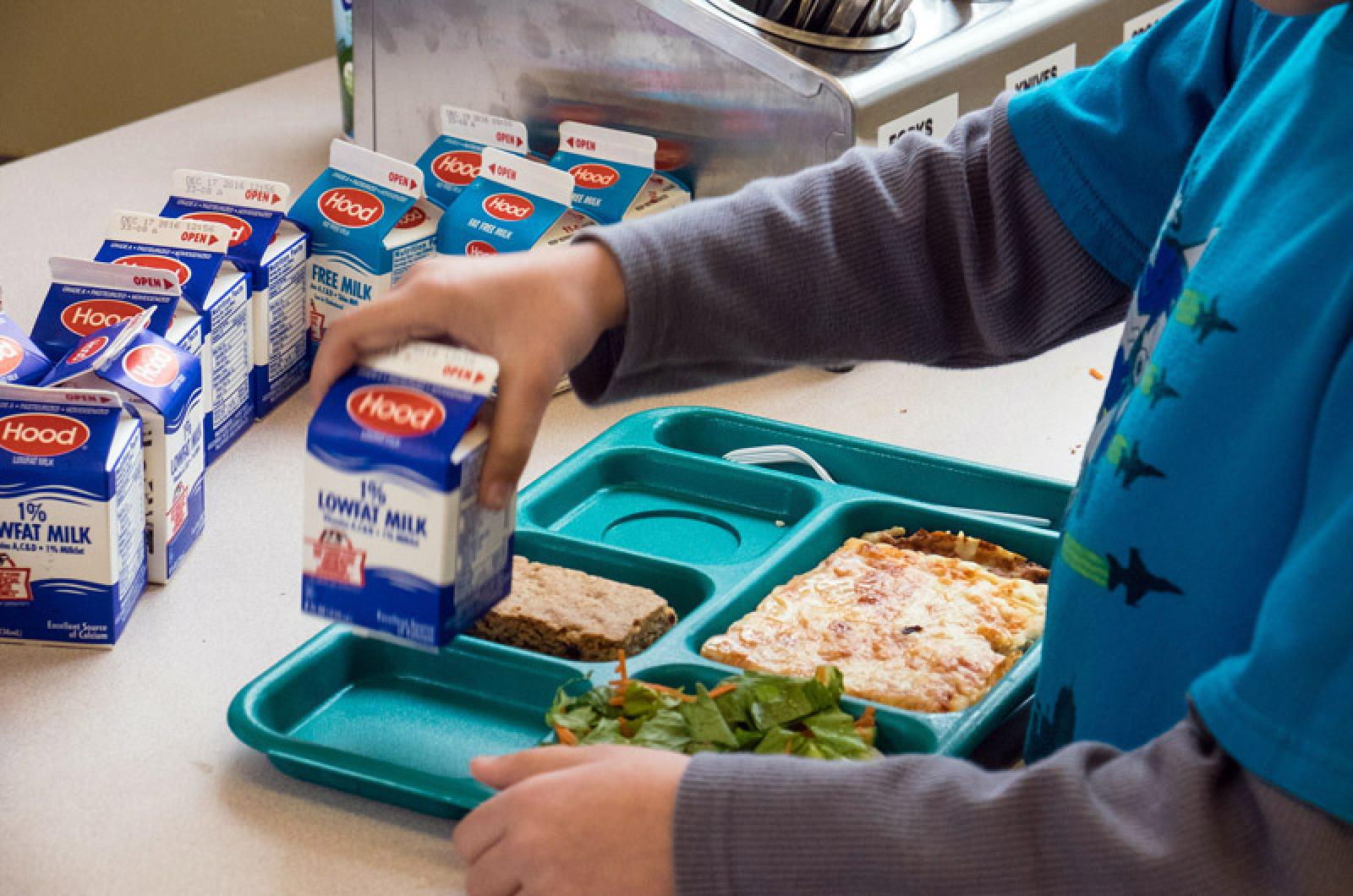When school lets out each summer, hundreds of Martha’s Vineyard school children are at risk of not having enough to eat. About 700 of the Island’s public school students are eligible to receive free and reduced-price lunches when classes are in session. But those meals end on the last day of school, making summer a hungrier time for many Vineyard kids.
A government-backed meal service for school children for low-income families, making its Martha’s Vineyard debut in July, aims to bridge the summer food gap by providing three meals a day to children 18 and younger. The monthlong pilot program, from July 10 to August 11, will be sponsored by the Martha’s Vineyard Regional High School, which will prepare the meals in its cafeteria and handle the documentation required for reimbursement.
“It’s a lot for anyone to sign up to be in charge of,” said Noli Taylor, community food educator with the nonprofit Island Grown Initiative, who has been driving the effort to establish a summer food program here. Even though the high school is lightly staffed during the summer months, “they came through, and figured out a more limited scope to start with,” she said. “We think we can reach about 300 kids.”
The meals will prepared at the high school and then delivered to three down-Island sites: The Boys & Girls Club in Edgartown, the English Language Learner program at the Tisbury School and the Oak Bluffs Library.

The library is the only meal site that is open to all children 18 and younger, regardless of income status or documentation. “If you are 18 or under, come to the library and get a free meal,” Mrs. Taylor said.
They may also get a free cooking lesson each week before lunch, through the Island Grown Schools program, she said.
The Boys & Girls Club and Tisbury School meal centers will be open only to those children who are enrolled in summer activities there. Mrs. Taylor estimated there are about 135 children at the club and 200 in the English Language Learner program at the school, with some individuals overlapping.
With the sponsor and sites determined, Ms. Taylor’s next challenge is to staff the pilot program with volunteers to package the prepared meals, deliver them to the three sites and clean up after each meal service. She’s been networking with local pastors, who are already active in community meals and winter shelter services, to see if their congregations will adopt meal sites on specific days.
“They would be responsible for making sure there are enough volunteers for the day,” she said.
The meal sites will also need administrative supervisors to tally meals served and report to the high school. “We applied for a grant for a small stipend for someone at each of the three sites,” Mrs. Taylor said.
Once enough volunteers have come forward, Mrs. Taylor said she will schedule a training session led by Ruth Campbell of Orleans, whose nonprofit Food4Kids feeds thousands of Cape Cod children each summer.
Statewide, about 50,000 schoolchildren receive summer meals at 600 mainland sites through the Summer Food Service Program, which is funded by the United States Department of Agriculture through the Massachusetts Department of Elementary and Secondary Education.
Federal funding for the meal program is not in danger “for this year, anyway,” Mrs. Taylor said. And although the future remains uncertain, she sees strength in the growing numbers of Islanders who are working to combat food insecurity in the community.
“One of the things I’m hoping is that, as we get more people engaged around this program, we can become a voice” to speak for the federally-funded meal programs and “make sure kids in our country have enough to eat,” Mrs. Taylor said.
“Hopefully we can be a force together,” she added.







Comments (1)
Comments
Comment policy »